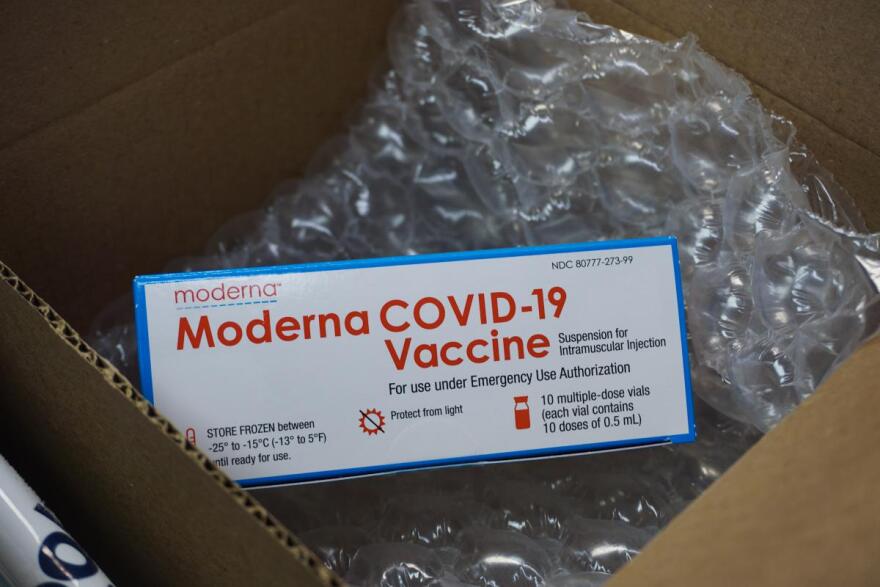One of the most remote regions in Alaska is the Aleutian Islands. And for the most part, communities along the island chain have done well throughout the pandemic, recording relatively few cases outside of seafood processing plants.
Now, according to health officials, a new Biden administration program that sends COVID-19 vaccines directly to community health centers could boost vaccination efforts for Eastern Aleutian Tribes — a tribal health care provider that operates in seven of the region's communities.
950 health centers across the country have been invited to participate in the program. But of the 14 of those in Alaska, EAT is the only participant so far.
Its participation will likely boost vaccine access both for the area's Indigenous and non-Indigenous residents, as well as for seafood processing workers who have been disproportionately affected by COVID-19.
"Right now, I'm looking at the map of the Aleutians, and thinking: How do we get from A to B with this vaccine? How do I get providers from A to B with this vaccine? How do I get people registered to use this vaccine?" said Paul Mueller, EAT's chief executive. "So many folks aren't on the road system that we have to use boats and helicopters and planes and jets."
EAT serves the Aleutian and Alaska Peninsula communities of Adak, Akutan, Cold Bay, False Pass, King Cove, Nelson Lagoon and Sand Point, as well as Whittier, not far from Anchorage.
Its permanent and traveling health care workers care for about 4,000 year-round residents, plus thousands more seasonal fish processing workers and fishermen, according to Mueller.
As of last week, EAT had given out more than 1,300 shots — a little more than half for residents, he said. And that number is growing quickly.
"This week alone, we're planning to vaccinate approximately 900 to 950 seafood processing employees," he said.
It's been a tough year for Mueller and his organization — particularly, sorting out the logistics of getting the right number of vaccine doses into such small communities without wasting any. Once a vial is opened, there's only about six hours to use it up before the vaccine spoils, Mueller said.
He described the problem with a story that starts with vaccinating two people in the tiny community of Nelson Lagoon.
"So each Moderna vial has 10 doses," he said. "We draw up the two doses for that community. We fly the plane from Cold Bay there, we drop off the two doses, those two people get vaccinated. The provider then takes off from there and goes to False Pass. There's six people there. We vaccinate those six people. Now we have two doses left in that vial. We head back to whoever's next."
While battling weather and flight delays has been tough, Mueller said he's had great partners, including airlines, air charters and shipping companies that have gone above and beyond.
As of Friday, EAT had reported just 70 positive cases of the virus among residents since the start of the pandemic, along with 367 among nonresidents and seafood industry workers. Almost all of the nonresident cases are from a single outbreak, now contained, at a huge Trident Seafoods fish processing plant on the remote island of Akutan.
In some ways, Meuller said, managing the coronavirus in these tiny, remote communities has gone more smoothly, because people are more likely to stay put and avoid others who might have just come back to town.
"Most people know what other people are doing," he said. "And right now, that really keeps people safe."
After a year of managing the pandemic, Mueller said EAT is finally on the offense. One reason is the new federal health center vaccine program announced by the Biden administration in February.
"This is an opportunity for us to fill in the gaps for people that need to be vaccinated," he said.
Officials say it's too soon to know how many vaccine doses EAT will ultimately get through the program. But it's already started receiving shipments, and Mueller said it's building a list of people interested in getting the shots.



